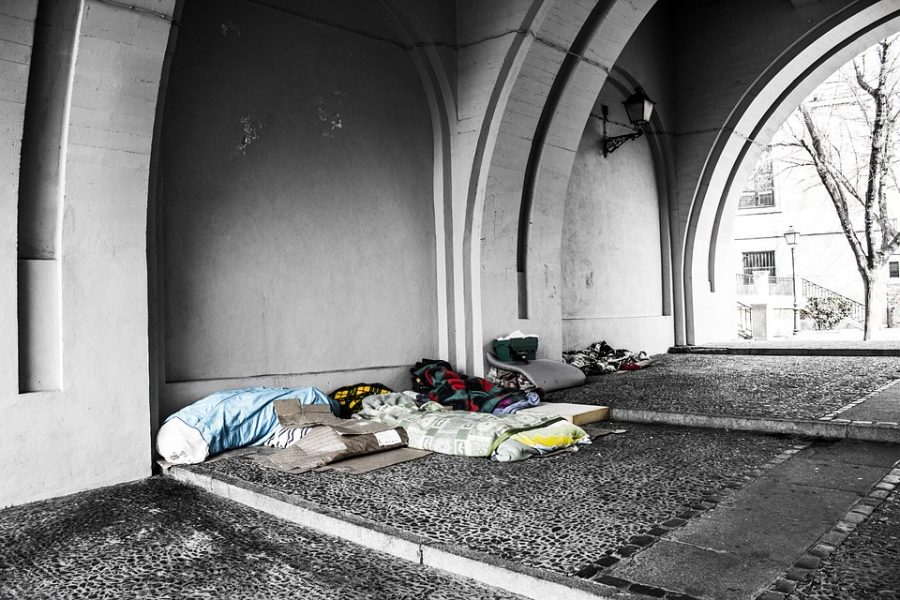Homelessness Awareness
The effect of low temperatures on homelessness
With the drop of temperatures across the nation, people are at a greater risk of getting health-related illnesses such as the flu or pneumonia. Just standing in the cold for several minutes can expose individuals to illnesses such as the flu, which travel in liquid particles, and therefore thrive in cold environments. While considering the effects of the winter weather on human health, it is important to consider the impact it has on the homeless.
It is approximated that there are almost 554,000 homeless people in the United States. With a population of approximately 323 million, the ratio doesn’t seem to be a substantial amount, although the numbers are growing each year.
The winter’s effect on homelessness can be severe, especially the danger of frostbite on the hands and feet, the number one hazard facing the homeless. Other threatening illnesses obtained from being exposed to cold weather for long periods of time include mild to severe infections, risk of heart attack, and hypothermia. It is estimated that around 700 homeless die annually from hypothermia alone.
The real question is, how can you help fight homelessness? Although it may seem that the task is too big to solve, small actions will help to eliminate those affected by the winter season.
Donating everyday items, such as food, clothing, and hygiene products to local shelters can make an everlasting impression on the lives of those affected by homelessness. With every small item that you donate, someone in your community will have access to these fundamental items.
Volunteering at shelters to pass out food, or assisting to box food to send to those in need is another effective way to help out. Charities in the D.C. area are always looking for volunteers to help out, especially during the winter season. Some of these organizations include Bread for the City, DC Central Kitchen, and Miriam’s Kitchen.
Overall, it is important to recognize the world around us, and take into account those who are affected by everyday conditions and problems. By taking small steps to help out with the immense number of those affected by homelessness, our generation can be the first to end it for all.

Hi, my name is Katarina Faben, and this is my third year on the Outlook. I am a proud member of the editorial board and take pride in helping others reach...





